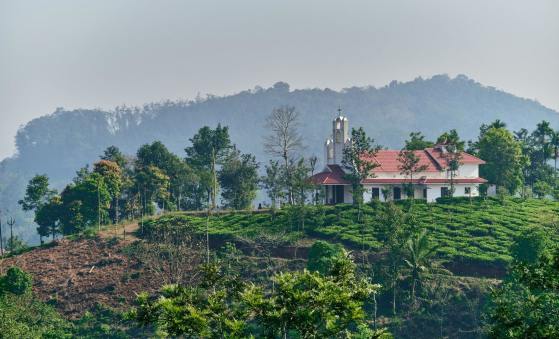
In a move that has reignited debate around the controversial Citizenship Amendment Act (CAA), the Central government has notified the Citizenship Amendment Rules, 2024, just days ahead of the expected announcement of general election dates. This paves the way for the implementation of the CAA that was passed by Parliament in 2019 but couldn't be operationalised due to the delay in framing the rules.
The CAA aims to facilitate citizenship for immigrants belonging to Hindu, Sikh, Buddhist, Parsi, Christian and Jain communities who fled religious persecution in Pakistan, Bangladesh and Afghanistan, and entered India on or before 31 December 2014. As per the new rules, applicants will have to submit six specified documents to prove their eligibility.
This includes birth certificates, tenancy records, identity papers, licences, and educational certificates issued by the government authorities in their respective countries. Crucially, they will also need to furnish a certificate issued by a “locally reputed community institution” confirming that they belong to one of the six notified non-Muslim minority communities.
Applicants have to register on the dedicated online portal www.indiancitizenshiponline.nic.in and upload all the requisite documents along with photographs. The applications will then go through background verification by security agencies before being processed by district and state-level committees.
Union Home Minister Amit Shah took to X (formerly Twitter) to laud the notification, stating it realises “the promise of the makers of our constitution” to the persecuted minorities from the three neighbouring nations. He asserted that with this, Prime Minister Narendra Modi has "delivered on another commitment."
However, the move has already drawn sharp criticism from opposition parties who have termed the CAA “discriminatory and unconstitutional” for making religion the basis for obtaining citizenship. They allege it violates the fundamental right to equality enshrined in Article 14 of the Constitution.
Leading Muslim organisations like Jamaat-e-Islami Hind, Jamiat Ulama-i-Hind, Jamiat Ahle Hadith among others have “vehemently condemned” the decision in a joint statement. "The discriminatory legislation threatens the social fabric of the country eroding the foundational principles of inclusivity and diversity," it stated.
“The timing chosen for the implementation of the Act is also questionable and shows the evident political motive of creating a religious divide in the society for narrow-minded political interests,” the statement added, questioning the Centre's intent with national polls around the corner.
The notification has drawn support from some allies of the ruling NDA as well. Sanbor Shullai, BJP MLA from Shillong South, Meghalaya, welcomed the exemption for Sixth Schedule areas like Meghalaya from the CAA's purview. He expressed appreciation to PM Modi for addressing the concerns raised by BJP MLAs from the Northeast regarding this issue. Shullai also highlighted that the Act covers prosecuted Christian minorities, who will benefit from obtaining Indian citizenship.
Most parts of the sensitive Northeastern region of India including Arunachal Pradesh, Mizoram, Nagaland and Manipur have been kept out of the CAA's ambit due to fears of indigenous communities about being demographically overwhelmed by immigrants.
The CAA had sparked widespread protests across the country, particularly in Assam and West Bengal, when it was passed by Parliament on 11 December 2019. The Home Ministry had to seek at least 10 extensions from the parliamentary committee to finally frame the implementation rules.
With the notification, the contentious legislation is set to be a flashpoint yet again in the run-up to the polls, as the ruling dispensation seeks to highlight its commitment to minorities facing religious oppression while the opposition continues to accuse it of undermining India's secular foundations. Legal challenges are also likely as the process kicks off amid charged political atmospherics.




